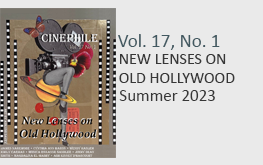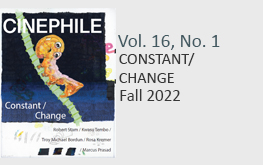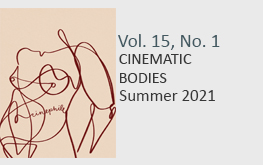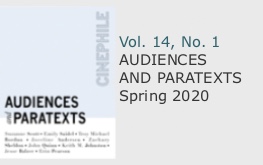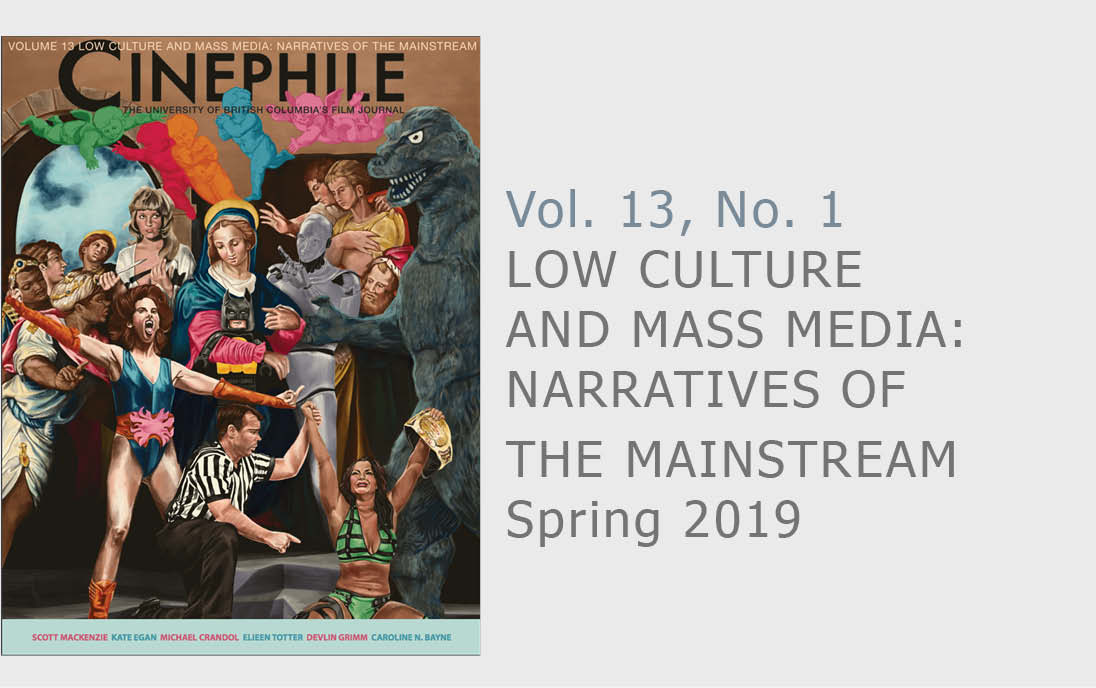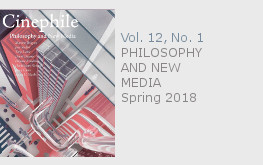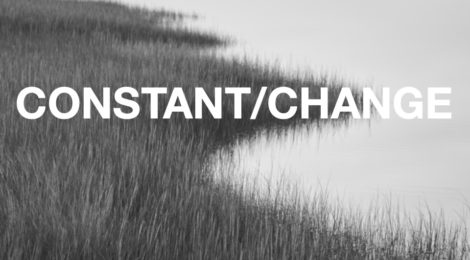
CINEPHILE 16.1: CALL FOR PAPERS
Cinephile 16.1 — Constant/Change
The past year has been a time of unprecedented change, but it has also led to important engagements with some long-standing ideological lived material practices. The film industry is no exception to these considerations, as media production, consumption, and criticism are constantly redefined by the evolving political, economic, social, industrial, and technological contexts in which they inhere. Some key historical shifts include, but are evidently not limited to, the advent of sound, colourized film, censorship, the Red Scare, feminist and civil rights movements, television, the multiplex, and the rise of the Internet. Some very recent radical changes include the COVID-19 pandemic and its temporary worldwide disruption of film production, distribution, and exhibition (as well as some of the unique opportunities that the pandemic presented to many independent producers and artists); global movements for social justice, which have uniquely highlighted the relationship between film production and the communities with which filmmakers engage; the meteoric rise of streaming services and social media platforms; global pop culture powers like South Korea, Japan, and Mexico increasingly influencing mainstream Western culture; and the unique existential threat of climate change, which will impact the creation of media in ways yet to be seen. With a focus on change, this issue of Cinephile hopes to interrogate the link between social and industrial development.
However, while it is tempting to focus exclusively on these crucial changes and shifts, film and media practices are also shaped by a myriad of long-standing ‘constants’ that inform their artistic, technological, and industrial components. These include studio systems, the ‘standardization’ of film form and language, the stylistic supremacy of Hollywood classical style, ongoing formal challenges posed by global New Wave cinemas, the technological obsession with creating ever-more faithful and perfect replications of reality, mainstream cinema’s elision of marginalized communities and experiences, and even the persistence of the the medium itself, despite innumerable predictions forecasting the ‘death of cinema.’ While the COVID-19 pandemic prompted a major disruption to media production and distribution, the ensuing lockdown and social distancing measures also created a unique sort of stasis wherein many groups found themselves unsure of how to proceed on both the practical and philosophical levels of filmmaking. The Wall Street Journal reported that worldwide online video streaming subscriptions reached 1.1 billion while movie theatre revenues dropped by $30 billion, revealing how the pandemic exacerbated a pre-existing tension between the two exhibition models. The tension between theatrical and online exhibition practices functions not only on the level of varying economic concerns between studios and artists, but also fundamentally impacts the nature of cinema as a shared experience.
This issue of Cinephile welcomes submissions that consider how new technologies, practices, and social, political, and economic contexts inform media production, scholarship, and consumption – as well as works that can account for the aforementioned and other constants in media practices. Our aim is to account for longstanding constants in a medium so heavily defined by key changes and innovations, while simultaneously exploring how these seemingly fixed constants shift and evolve as they absorb new changes.
Possible topics may include (but are not limited to) the following:
- The influence of technological development on film form
- Changing approaches to race, gender, sexuality, and disability in film production and scholarship
- Encounters between classical and experimental cinematic forms
- The stability of classical and experimental forms across various eras of film history
- The impact of COVID-19 on film production, including production stoppages, new safety protocols, and “pandemic productions”
- Non-theatrical distribution models including streaming services and pay-per-view releases.
- The evolution of home entertainment
- Globalization and media
- The proliferation of short, online video content via TikTok, Quibi, Snapchat, etc
- Film production and climate change
We encourage submissions from graduate students, postdoctoral researchers, and established scholars. Papers should be between 2,000-3,500 words, follow MLA guidelines, and include a detailed works cited page, as well as a short biography of the author. Submissions should be directed toward SUBMISSIONS@CINEPHILE.CA and general inquiries toward INFO@CINEPHILE.CA.
Submissions are due by October 23rd, 2021.
–
Cinephile is the University of British Columbia’s film journal, published with the continued support of the Centre for Cinema Studies. Previous issues have featured original essays by such noted scholars as Lee Edelman, Slavoj Žižek, Paul Wells, Murray Pomerance, Ivone Marguiles, Matt Hills, Barry Keith Grant, K.J. Donnelly, and Sarah Kozloff. Since 2009, the journal has adopted a blind review process and has moved to annual publication. It is available both online and in print via subscription and selected retailers.
Incoming editors: Alec Christensen, Andrew Kirby, and Michael Stringer

